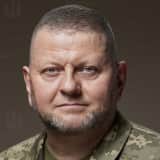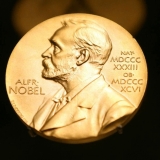In praise of Ukrainian ethical values in Ukrainian literature
We’re drinking our morning coffee when an article pops up in our Facebook feed about Jonathan Littell struggling to rearrange the imperial legacies on his bookshelves. Empathy kicks in immediately: we want to offer our help. After all, we feel totally up to the task. This is something we’ve already tried to tackle in the past — and it’s been quite a while since we had a proper chance to rearrange the books on our own shelves back in our homes in Donetsk, which became lost to us long before "the war started" for Littell. (Here’s a little reminder for anyone who just rolled their eyes because those traumatised Ukrainians are parading their trauma in front of everyone again: a traumatic experience doesn't strip away one’s agency, and your urge to eyeroll could just be a sign of your privileged position of safety. And now that’s clear, let’s move on.)
Contested identities can be hard to work with, and employing older approaches developed specifically by and for old empires may not always be a good solution. Much has been written and said about the search for new solutions — and who is in a position to produce them. But even now, the months and years we have spent calling for paradigm shifts in the production of knowledge about Ukraine and Eastern Europe, in the awareness of one’s positionality, and in the distribution of voices/platforms, were neatly summed up in a single tweet by a German user who complained that he acknowledges that it’s time to listen to Ukrainian voices, but he doesn’t like what they are saying.
Something very similar apparently happened to Jonathan Littell. In his essay, he mentions a conversation he has about Bulgakov with Myroslav Layuk, but he clearly doesn’t like what Layuk is saying and proceeds to lecture the Ukrainian writer about Ukrainian literature. For Littell, coming from a more privileged Western context, the role his Ukrainian counterpart plays in this conversation (as it is presented in the essay) is that of the classic anthropological "native informant" whose voice serves only to highlight Littell’s point. This is just a minor example of the typical colonial attitude described using typical colonial language — and only a tiny drop in the colonial waterfall of Littell’s essay.
The forthright confidence with which this Western writer lectures Ukrainians on who should be considered a Ukrainian writer, and why, bears a striking resemblance to the ease with which Western colonial powers, back in the day, used rulers to lay out the borders of new states on the world map (and then to measure their peoples’ noses/skulls — often with the same ruler). This time, though, the scale is much smaller, reduced to just one man’s bookshelves — or rather to one national literature. No deeper understanding of the local context is necessary: the colonial idea of a local culture being by definition small suggests that it could only have given the world mere dozens of names. Yet there are already four dozen names on the list that writer and paramedic Olena Herasymiuk has compiled of the writers and translators who have so far been killed in Russia’s war against Ukraine. Even the strategy Littell suggests using to replenish the list of Ukrainian authors — which appears to be a very short one in his mind — by adding Akhmatova, Mayakovsky or Bulgakov is profoundly colonial and based on an ethnic understanding of national identity.

Littell is neither the first nor the only one of "them in the West" to attempt to impose this ethnonational identification on Ukrainians — ironically, the same ethnonational identification we are also repeatedly accused of by "them in the West". It’s like an endless loop of being forced into this framework and then blamed for allegedly choosing it. As long ago as 1995, Mark von Hagen was writing about this Western inability to see beyond the "ethnic" or "blood" nationalisms assigned to the eastern half of the European continent, Ukraine included — as opposed to the "good" nationalisms reserved for Western countries. What is completely missing from this picture is the fact that contemporary Ukrainian identity is more complex and is based on civic and ethical values rather than ethnic origins.
So when we say that we do not want Bulgakov, Akhmatova, Mayakovsky or Paustovsky as a part of Ukrainian literature, it is because we have no actual common values and therefore no shared identity with Russian imperialists or even people describing their "deep emotional affinity for Russia". And while it might be tempting to compare Bulgakov to Céline, since we all seem to agree that both were, without a doubt, bastards, in terms of empire-colony power dynamics, it would make more sense for Littell to go and try to talk Algerians into annexing Camus.
Moreover, the ethnonational re-identification or annexation that Littell proposes to perform on long-dead Russian writers is nothing new. For quite some time already, contemporary Russians working in the arts have been using similar strategies to "unsubscribe" from their original Russian identity in an attempt to abdicate responsibility while retaining all their former symbolic benefits/privileges. Just a few months ago, we wrote an essay about those strategies entitled "Grandmother from Zhytomyr and other strategies of self-unrussification" for a decolonial workshop we ran at the Schinkel Pavillon in Berlin, and we believe it would be beneficial to reproduce a slightly abridged version of that text here.
Grandmother from Zhytomyr and other strategies of self-unrussification: A Russian’s guide to keeping all the good things
Russian victimhood talk is part of the crime.
Timothy D. Snyder
The colonisers of the future will call themselves decolonisers.
(A modern take on a quote falsely ascribed to Winston Churchill)
Like many other Ukrainians, years ago I had this acquaintance from Moscow. We used to chat now and then, but in 2014 we gradually started to move apart — not because of what he was saying, but rather because of what I was expecting him to say and he didn't. The first time he ever mentioned Ukraine in his Facebook posts was much later, around 2016, when he was travelling around the US with his boyfriend and complained that they had to tell people they were from Ukraine to avoid the weird glances they got when they told the truth. And that was the last straw, after which I finally deleted him from my friends list and cut what little contact remained.
It was a rare, standalone episode back then, but when 2022 came, these tiny single streams suddenly became a flood. In 2023, hearing a conversation like "There is a major exhibition by a Ukrainian curator — wait, why are they suddenly Ukrainian when they were born and studied in Russia? — Well, they said so themselves" was not even a surprise anymore.
These last few years – marked though they are by the terrible losses, devastation and grief caused by Russia’s invasion of Ukraine – have seen a significant shift in decolonial thinking. Thanks to the efforts of researchers and thinkers from the region that has suffered from Russian colonial violence, postcolonial and decolonial discourses have expanded beyond describing the relationships solely between the so-called First and Third Worlds1; Russia’s "imperial innocence" is finally being contested2; and the colonial nature of Russia’s invasion of Ukraine is now being widely discussed3. However, despite the immense efforts these regional thinkers and their allies from other contexts have put in to make existing colonial structures and connections visible, epistemic imperialism still complicates the process of knowledge production.
More and more, the decolonial discourse is being hijacked and instrumentalised by the very people who used to be the beneficiaries of centuries-long colonial violence and the producers of knowledge about the region for the sake of the empire. This serves primarily to preserve access to all the earlier privileges and to evade at all costs the conversation about personal implications within the colonial project and narratives.
The discussion about responsibilities related to the Russian invasion and Russian colonialism is more complex than binary oppositions and universal solutions. It demands nuanced approaches that would take the numerous existing contexts into account. Leaving aside those directly involved in the Russian military campaign, let us focus on the cultural sphere.
On the official Russian state level, Russian culture is perceived as an extension of the Russian colonial project, one of its most effective promotional tools and often openly described in military terms. One of the many examples of such discourse is Mikhail Piotrovsky, director of the State Hermitage Museum in St Petersburg, who said in an interview before the full-scale invasion that Russian art exhibitions abroad are "a kind of special operation" and openly declared that international cooperation by Russian museums and the invasion of Ukraine are both part of the same project. Another is the Alexandrov Ensemble, the official army choir dubbed a "singing weapon" by the Russian state media.
Artists and thinkers who publicly pose as opponents of official Russian policies, however, tend to deny that Russian culture is being instrumentalised to spread colonial narratives, declaring that Russian politics and Russian culture exist in separate isolated spaces. Yet even as they claim in their public speeches that "real Russian culture is not that of propaganda", they often go on in the very next sentence to plead for sanctions to be lifted from some Russian oligarch or other, as the Russian film director Kirill Serebrennikov did at a press conference at the Cannes Film Festival in 2022.
From our observations, claims about the "innocence" of Russian culture and the need to separate the actions of "official Russia" from the "great Russian culture" usually arise in response to (real or even symbolic) threats of a reevaluation of the privileged position held by Russian culture. But these claims rarely try to address the issue of exactly how Russian culture came to be perceived as "great", and any attempts to raise this question lead to accusations of ethnically based hatred or even racism. Thus, the centuries of colonial violence, the systemic extermination of subdued cultures and their bearers by the Russian metropole, the forced assimilation, the appropriation of artists from other cultures as "Russian", the prohibitions on the languages and traditions of colonised communities, and the direct looting of artefacts which are now stored in Russian museums (the above mentioned Hermitage included), mislabelled, taken out of context and mostly inaccessible for researchers and even visitors from their original contexts, are left out of focus.
After 24.02.22, there was a sudden massive wave of performative and public severings of personal ties with Russian culture and heritage among cultural professionals with a Russian background. Those who suddenly felt this need, and began to highlight in every way their non-belonging to the Russian context, started doing this at exactly the same time as their careers came under threat by a growing number of Ukrainian cultural actors and their allies calling for a reduction in the international representation of Russian culture during the ongoing genocide. Even though these symbolic gestures may also have been motivated by remorse and pain for the devastated Ukrainian cities, they were mostly transferred into the space of public statements and actions as attempts to preserve their own status quo. Successful cultural actors who had been building their careers at Russian institutions for decades, who spoke of the Russian context as their own, and who would switch to the Russian language as soon as possible when talking to you, suddenly started rediscovering their more oppressed heritages in droves. An impressive number of people professionally affiliated with Russian culture suddenly produced a "grandmother from Zhytomyr" or "childhood years in Qazaqstan" like a magician pulling a rabbit out of a hat at a kids’ party as soon as the discussion about rethinking the public representation of Russian culture started to unfold.
Texts written by "former Russians" since the full-scale invasion are easy to recognise: they scream in readers’ faces "'twasn't me!" A keen eye can spot numerous manipulations with post- and decolonial vocabulary. "The attempt to grapple with vanished knowledge is a crucial skill for those who came out of the Soviet Union" — thus Iaroslav Volovod, curator of Moscow’s Garage Museum of Contemporary Art, begins his essay "From Kostiantynivka to Constantinople". He goes on to give a detailed description of his multicultural context, spread thinly over the postcolonial geography, mentioning his grandmother from the Ukrainian town of Kostiantynivka, his childhood years in the Russian Arctic Circle, and Greek family lore. Volovod apparently sees himself as one of the countless bearers of "uprooted identities" from all over the "post-Soviet space". What is missing from this text is any reflection on his own positionality: his education at top Russian universities, his career built in Russian institutions, and how his status as a Russian curator has helped him build professional connections and gain access to institutional resources that the majority of bearers of "uprooted identities" can only dream of. As soon as his status as a Russian curator becomes potentially problematic, Volovod readily discards it. (Nota bene: and in this he has been extremely successful — the recent exhibition "As Though We Hid the Sun in a Sea of Stories: Fragments for a Geopoetics of North Eurasia" at HKW in Berlin is a perfect example of the curator retaining both his access to institutional resources and his right to speak in the name of the whole region.)
Of course reclaiming one’s ancestral heritage is a powerful decolonial move. Of course decolonial resistance and the decolonial movement require the unsilencing of hidden stories, the addressing of erasure, the promotion of plurality, and so on. But this "saying goodbye to the Russian context" is done first and foremost to obtain personal benefits and avoid any discussion of personal implications in the colonial project. While decolonial practice does indeed encourage engagement with one's own positionality, the main aim of this particular reframing of one's own identity is the opposite: to self-inscribe into the pool of victims of the colonial project and put on the clothes of the vulnerable group.
Another distinct strategy of seemingly keeping up with decolonial processes while misrepresenting or entirely ignoring their original essence is used by both Russian state propaganda and so-called "good Russians". I remember sitting through a presentation at an arts centre in Almaty, Qazaqstan, run primarily by Russian individuals, listening to them talk at length about how they organise decolonisation-themed reading groups to study classic texts by Mignolo, Lugones, Quijano, and others. When I asked whether they had considered reading any Qazaq, Ukrainian or other authors dealing with Russian colonialism, the answer was disarmingly blunt: "We have a different context here: we are only interested in decolonising ourselves from Western colonialism because we are its victims" (ironically, in its lobby the arts centre boasts about being co-funded by a major US energy corporation). This banner of "decolonial struggle" against the West was inherited by Russian state structures from Soviet times and is used regularly to this day by Russian-organised parliamentary assemblies and university conferences addressing Latin America and Africa. Yet whenever it comes to discussing Russian colonialism, the rhetoric changes drastically, not even shying away from outright racism (for example, see the report titled "Decolonisation": who and how is preparing the breakup of Russia produced by the government-affiliated "think tank" Expert Institute for Social Research in 2023).
At the same time, it is important to keep in mind that not producing knowledge about others (except for speaking about the coloniser as an act of resistance) is a very fragile position for formerly colonised communities. On one hand, this refusal to produce knowledge outside of our competence is intentional. It is decolonial at its core, and that is where its ethical advantage lies. On the other, however, this stance naturally prevents, for example, Ukrainians from also speaking in the name of Qazaqs, Belarusians, etc., and vice versa. As such, it leaves the niche formerly occupied by representatives of the metropole vacant, creating the temptation for other former colonial powers to fill that niche again with the same representatives of the same metropole.
However, despite attempts by various actors to instrumentalise the decolonial discourse for their own gains on the one hand, and the active decolonial gatekeeping practised by certain researchers on the other, it remains a crucial task to continue to work on the problems specific to the former "post-Soviet" region and to understand the specific features of the colonial policies of contemporary Russia (as well as the Soviet Union and the Russian empire).
- See Vitaly Chernetsky, Mapping Postcommunist Cultures. Russia and Ukraine in the Context of Globalization, McGill-Queen’s University Press, 2007
- See Botakoz Kassymbekova and Erika Marat, Time to Question Russia’s Imperial Innocence in PONARS Eurasia Policy Memo No. 771, 2022
- See Timothy Snyder, The War in Ukraine Is a Colonial War in The New Yorker, 2022
Lia Dostlieva, Andrii Dostliev






